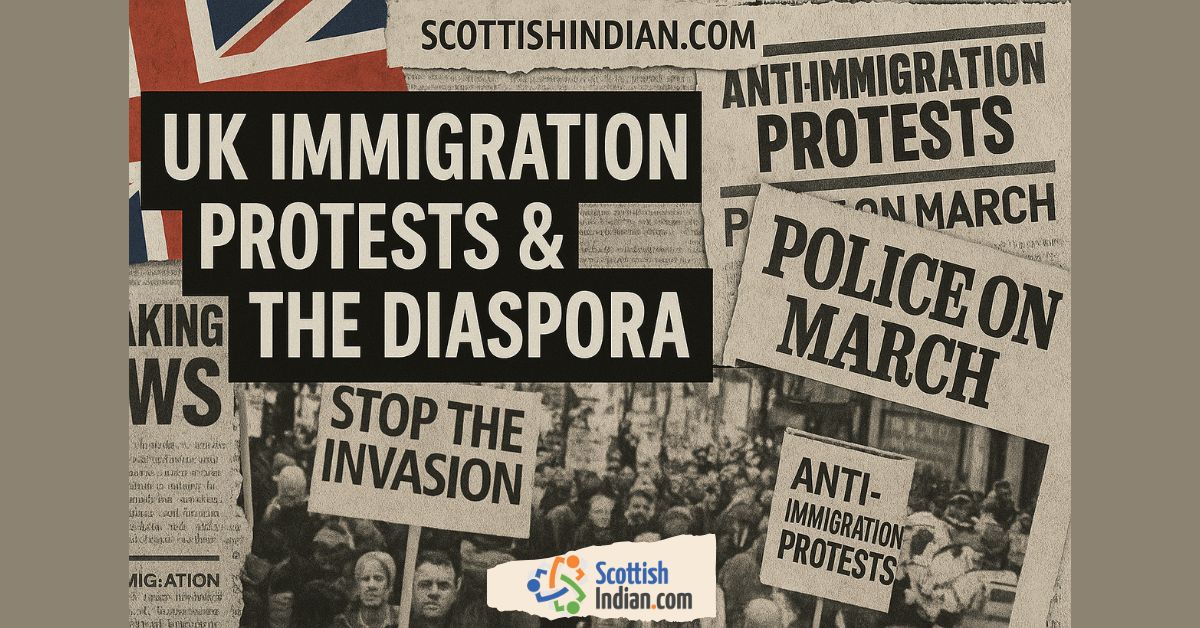Recent UK anti-immigration protests highlight challenges for immigrants and the diaspora. What do they mean for South Asians in Scotland and beyond?
Over the past week, the UK has witnessed some of the largest anti-immigration protests in its recent history. In London, over 100,000 people joined a march that turned violent, leading to clashes with police and counter-protesters. Similar demonstrations have spread to towns and cities across the country, bringing issues of identity, belonging, and migration into the spotlight once again.
For the South Asian community in Scotland and the wider UK, these events raise important questions: What do such protests mean for immigrants and their families? How can diaspora communities respond with strength and solidarity?
What Happened?
On 13 September, a protest branded “Unite the Kingdom” drew an estimated 110,000 to 150,000 people to London. Organised by far-right figures, the demonstration centred on opposition to immigration, asylum seeker accommodation, and government policy.
- Clashes with police: At least 26 officers were injured, and 25 arrests were made.
- Counter-protests: Groups like Stand Up to Racism organised in opposition, calling out what they see as divisive and xenophobic politics.
- Political reaction: Prime Minister Keir Starmer condemned the far-right imagery, while concerns grew about external figures amplifying inflammatory rhetoric.
Why It Matters to the Diaspora
1. Rising Polarisation
For immigrants, especially visible minorities, large anti-immigration protests can feel threatening. Even if many protesters focus on policies, the symbolism — flags, chants, and slogans — can feed a narrative of exclusion.
2. Everyday Impact
Events like these can influence workplace conversations, community interactions, and even local politics. For South Asians in Scotland, it may raise anxiety for students, workers, and families about safety and acceptance.
3. Policy Shifts Ahead
The scale of these protests puts pressure on the government to address immigration concerns, potentially leading to tighter policies that directly affect visas, asylum, and work rights.
How Communities Can Respond
- Solidarity and Dialogue: Counter-protests and community forums show that many reject hate and division.
- Celebrate Contributions: Remind the wider public of how immigrants contribute to Scotland’s culture, economy, and identity from small businesses to NHS workers.
- Stay Informed: Following trusted sources like BBC News helps cut through misinformation and fear-mongering.
- Support Networks: Platforms like ScottishIndian.com connect diaspora communities with reliable services and a sense of belonging.
The recent UK protests show how fragile debates around immigration can become. For the South Asian diaspora, it’s a reminder of the importance of resilience, unity, and ensuring that their voices and contributions are not overshadowed by divisive narratives.
By celebrating culture, fostering dialogue, and engaging with society at every level, the diaspora can help shape a future where diversity is seen not as a threat, but as Scotland and the UK’s greatest strength.






